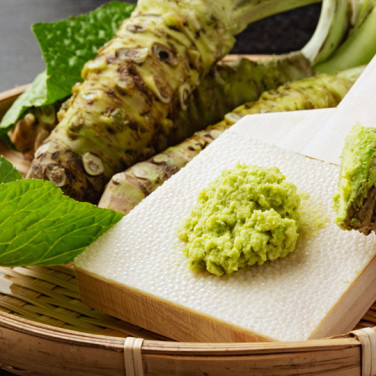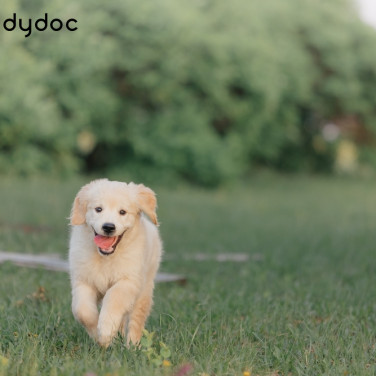FOOD
Can Dogs Eat Lychee Fruit? Is Lychee Good for Dogs?
페이지 정보
본문
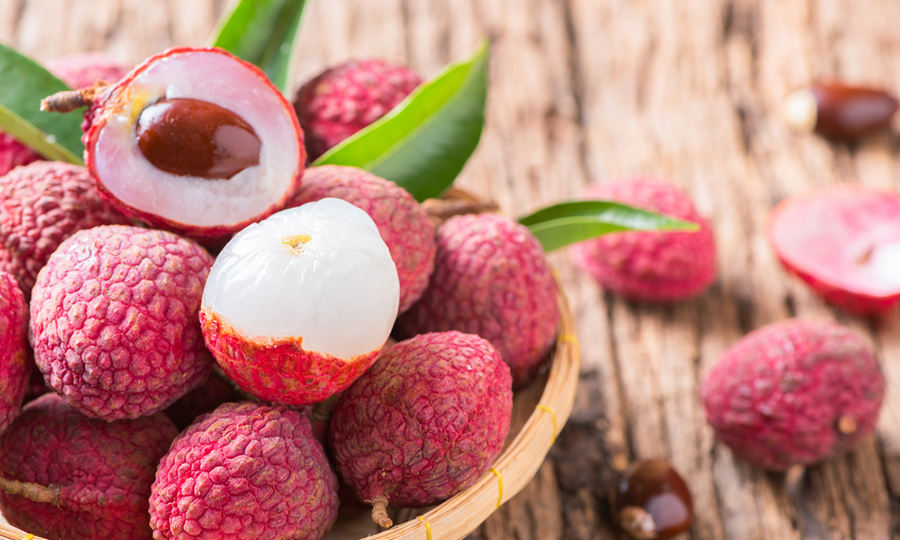
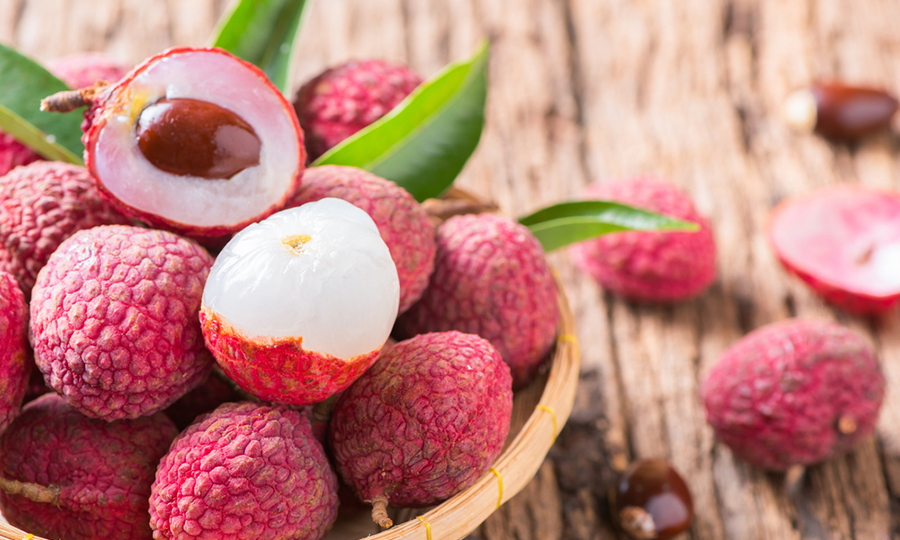
Can dogs have lychee? YES!
The white flesh is safe for your dog to consume, however, the seeds and skins are considered toxic and can cause choking hazards. It's important to ensure that you peel and deseed lychees properly before feeding them to your pet. The pulp of lychees is rich in fiber, vitamins, minerals, and antioxidants, making it a pretty great healthy snack for your pets! However, it's crucial to keep in mind that under-ripe lychees contain high levels of hypoglycin and MCPG components. If a pet eats under-ripe lychee, they may suffer from hypoglycemia and even collapse. So, ensure that you are feeding the fresh and ripe lychee.
The health benefits of feeding lychee to dogs
Lychees can be a good snack for pets when fed in small amounts and properly. They are rich in nutrients that are beneficial for their health, including vitamins B and C, phosphorus, manganese, potassium, and fiber.
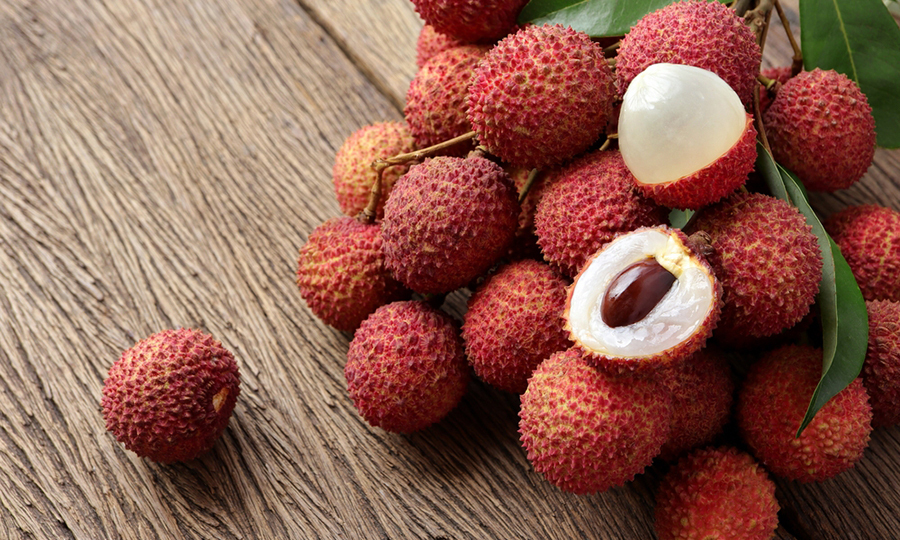
Why Lychee is good for dogs
Vitamin C: A great source of vitamin C that helps to promote a healthy immune system.
Vitamin B: Vitamin B can help boost the ability to regulate a dog’s metabolism, facilitate the synthesis of proteins which is essential for the production of glucose, as well as providing the necessary energy for cells to operate effectively.
Fiber: Lychees are rich in fiber which makes them beneficial to a dog’s digestive system, but in moderation.
Copper: Copper plays a crucial role in the development of the skeletal system and also aids in preventing anemia through its ability to enhance iron metabolism.
Potassium: Potassium is a major electrolyte that helps to maintain blood homeostasis and prevents dehydration.
Magnesium: Magnesium is an essential mineral that plays an integral role in maintaining nerve and muscle function, as well as supporting the immune system, bones, and heart. Additionally, it aids in regulating blood sugar levels and facilitating the production of both energy and protein.
Phosphorus: Phosphorus combines with calcium to help support bone health, transmit vital energy, and regulate metabolism.
Manganese: Manganese delivers enzymes necessary for a healthy metabolism. It also aids in the formation of bone, cartilage, and collagen and helps to form antioxidants that protect against free radicals.
How to properly prepare lychee for dogs
It is important to separate lychee seeds and skins from the flesh before feeding to pets, as the seeds and skin can be dangerous and cause choking or digestive problems. When giving treats to pets, it is recommended to only provide 10% of their daily calorie intake. Additionally, the high sugar and fiber content of the flesh may cause an upset stomach, so it is best to cut it into small pieces and feed it in moderation. Moreover, it is crucial to ensure that the fruit is ripe before feeding, as unripe lychees are characterized by their green skin and can be highly toxic if consumed.
Take these cautions when feeding lychee to dogs
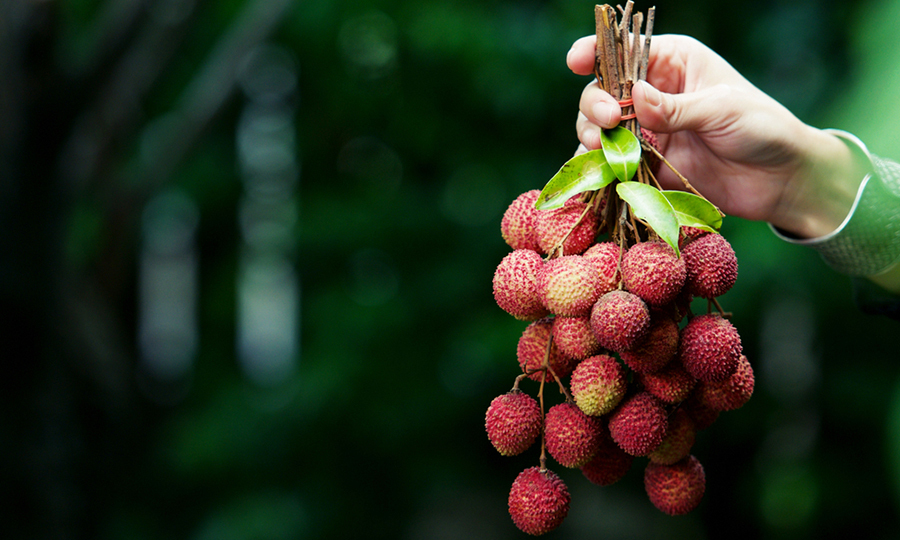
There are a few concerns about why lychees can be dangerous if consumed by your pet without supervision. For instance, the seeds and skins of lychee are a choking hazard. Additionally, various toxic substances found in lychee can cause symptoms of poisoning in your pet if prepared poorly.
Toxic component in lychee seeds
The toxicity of lychee seeds is a significant concern for both humans and animals. Saponins, which are present in lychee seeds, can cause digestive issues when ingested and are part of the fruit's defense mechanism against insects and other threats.
In addition to saponins, lychee seeds also contain methylene cyclopropyl glycine or MCPG. MCPG can interfere with glucose synthesis and fatty acid oxidation in the body, leading to symptoms of poisoning such as hypoglycemia.
It's important to note that the toxicity of lychee is not limited to the seeds alone. The pulp and peel of unripe lychee also contain these harmful compounds, and the levels of toxins can be 2 to 3 times higher. It’s crucial to be cautious when picking which lychee to feed your dog and ensure that the fruit is ripe before feeding. Always avoid feeding lychee skin and seeds to pets or letting them consume unripe lychee, as they can be harmful and lead to serious health problems.
Why the skin of lychee is bad for dogs
The skin of lychee is typically hard, thick, and made up of tough fibers, making it difficult to digest if consumed. The skin of lychee is rough and thick, which poses a choking hazard for dogs. A dog may find it tough to chew and resort to swallowing a lychee whole, which can lead to obstructing the digestive tract and intestinal blockage. Additionally, lychee skin can carry pesticides that linger from the farm it was harvested from. If a pet were to ingest these pesticides, several health problems can arise from consumption.
Therefore, it's recommended to remove the skin of the lychee before feeding it to your pets. This will eliminate any potential risk of choking or digestive tract obstruction, and also minimize exposure to pesticides. Ensuring that your pet eats only ripe and edible parts of lychee will keep them happy and healthy.
Why unripe lychee is toxic for dogs
Lychees are known to contain harmful substances, such as hypoglycin, MCPG, and saponin. It is important to exercise caution, especially around unripe lychees, as they can contain 2 to 3 times more toxic components. MCPG and saponins are particularly hazardous when the fruit is not fully matured. MCPG can impede glucose synthesis and fatty acid oxidation in dogs, resulting in a rapid decline in blood sugar levels. Saponin will cause more mild digestive symptoms in dogs if ingested, such as vomiting and diarrhea.
Symptoms of lychee poisoning in dogs
Symptoms of consuming unripe lychees include stomach pain, vomiting, and diarrhea, as well as the presence of blood in the stool and urine. It is recommended to be mindful of the ripeness of lychees before feeding them to your dog to prevent any adverse health effects.
Other symptoms include:
- Muscle spasms
- Dark urine
- Drooling
- Seizures
- Lethargy
The other dangers of feeding unripe lychee or feeding too much lychee to dogs
Fasting state: If you feed dogs lychee on an empty stomach, the MCPG found in the flesh can spread more quickly and cause more severe symptoms.
Excessive intake: The flesh of lychee is not particularly toxic to dogs, but excessive consumption may cause upset stomach or abdominal pain due to its high fiber content. Also, lychees are high in sugar, which is never good for a pet’s diet in excess. It is especially dangerous for the health of pets with obesity or diabetes.
Allergies: Lychees contain some proteins that can cause allergies. Allergic reactions can occur when feeding a new food item for the first time and result in intolerance. To test for an allergy, it is recommended to give a small amount of lychee and monitor for any signs of a reaction. If your puppy shows any signs of an allergy, it is important to immediately stop feeding and contact your veterinarian.
Signs of an allergic reaction to look out for:
- Skin problems: hives, facial swelling, itchiness
- Digestive problems: vomiting and diarrhea
- Shortness of breath
Wondering if you can feed your dog other foods besides lychee?
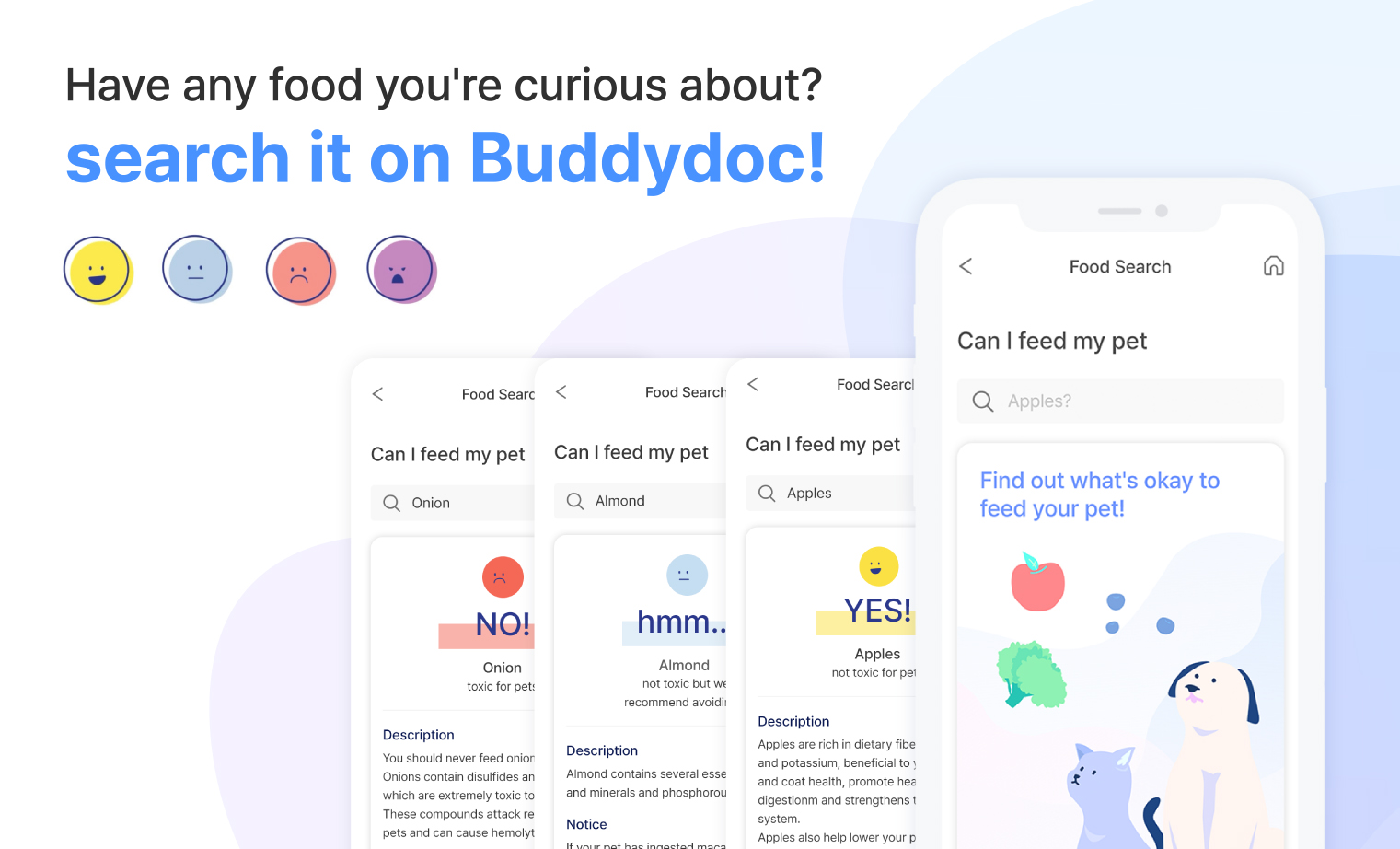
Does your dog also look up at you with those puppy dog eyes whenever you are snacking on something? You know foods like chocolates should not be shared with them but do you search the Internet every time if it’s okay to share a bite of whatever you are eating? The Buddydoc Food Dictionary provides information on hundreds of foods that we consume and informs you whether it is safe for them to consume and the nutritional benefits for your pet. If you're curious about other foods, try searching on Buddydoc!




